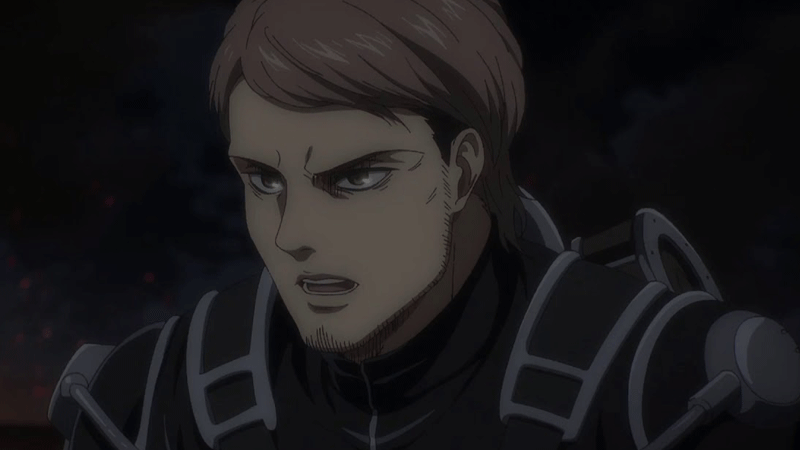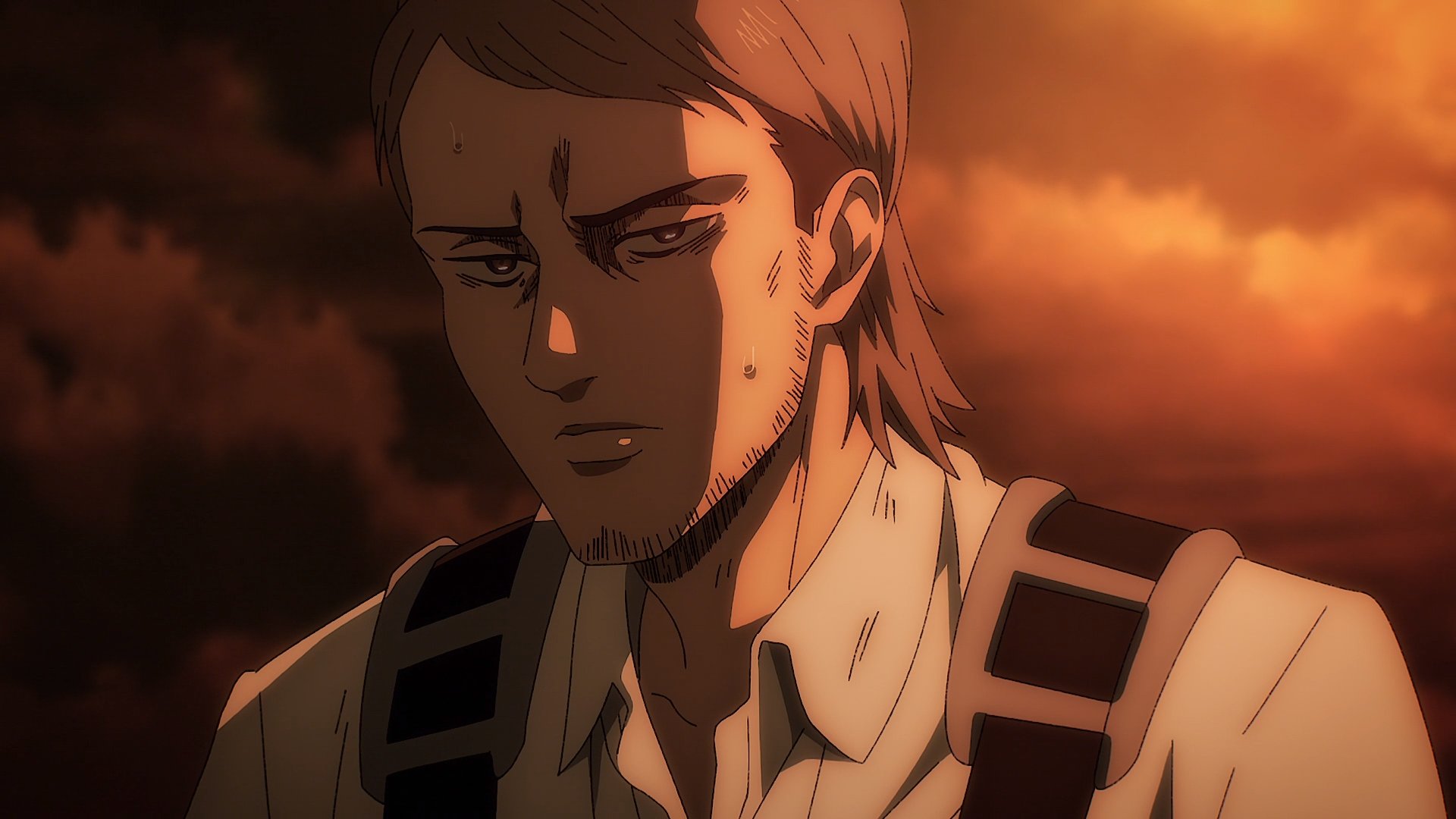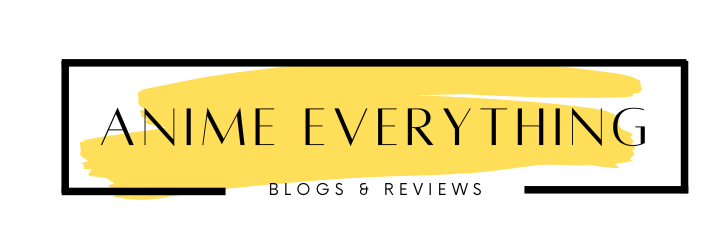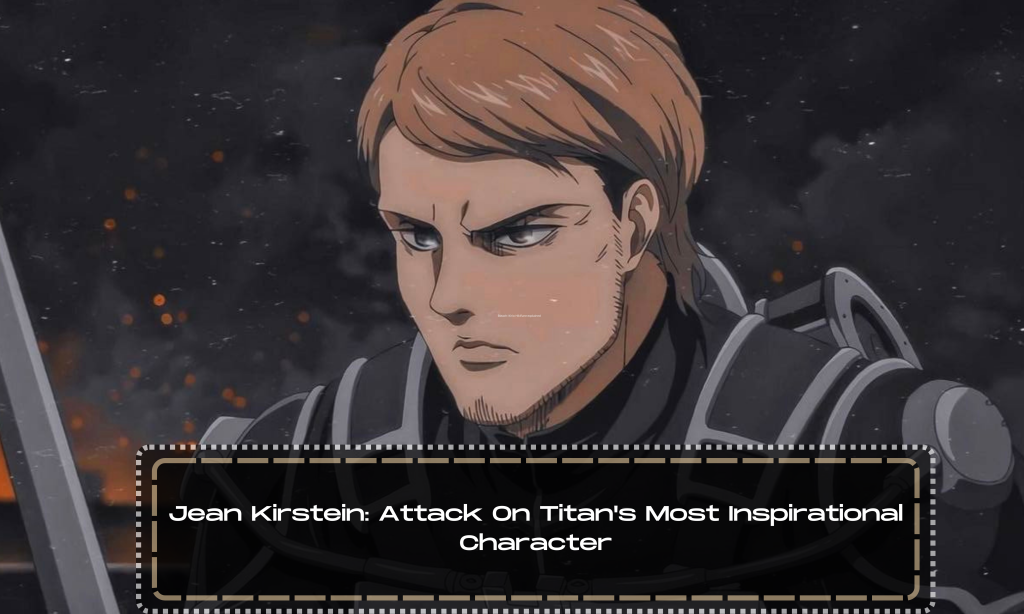Jean Kirstein: Attack On Titan’s Most Inspirational Character
As a story that examines perspectives with a fine-tooth comb, one of my favourite things about Attack on Titan is how it is so concerned with dealing with things at the ground level. After the huge moments, it always takes time to allow the dust to settle and examine the perspective of the common folk – the regular citizens or background characters.
The grand concepts and huge momentous story-shifting twists are wonderful peaks of the series, but it wouldn’t be Attack on Titan if it didn’t focus on the smaller scale ramifications and fallout from these big moments. And the story shows this perspective through many minor plot events throughout, but it also offers a lens into this through the eyes of one of our most prominent characters.

Jean Kirstein is one of the most inspirational characters I’ve ever seen, and a lot of the reasons as to why take root in the specific draw to the type of person he is as articulated by Marco, how Marco’s death resulted in those words resonating, and how he takes them in in as the core of his ideals to continue to try to do what’s right and betray the memory and faith of his fallen friend.
Jean is a bonafide leader – not because of the absense of cowardice within him, but because he rises above it. People are drawn to him and band around him because of that specifically – because like them, he knows what it’s like to be scared and charges ahead in spite of that – which in turn gives those around him the determination to do the same.
In some cases, being a symbolic spearhead who leads by example and persuasion can work to great effect, as we see numerous times throughout the series. But someone like Erwin was not a human example to his men as much as a focal point of inspiration and rage to empower. And Jean is more grounded, relatable and normal than lofty symbols like the late commander.
He isn’t nearly as inhumanly skilled as Levi or Mikasa, nor as incredibly intelligent as Armin, nor does he have any titan powers to shift the tides of this war. But he does have a heart, a deep knowledge and experience of what it means to be scared and flawed and tempted.
And enough courage, conviction and resolve to see the bigger picture anyway. I won’t spoil this unrelated story so don’t worry – but one of my favourite ideas from Arcane is how it explores the theme of the comforts of drowning in the midst of exhaustion and pain – either literally or metaphorically. The water draws you in, warms you, caresses you and tells you that it’s alright to submit.
And you do feel tempted to do so and to let fate run its course, to give up and stop feeling that pain. But the one thing that can stop you from giving into that temptation is the voice inside you that implores you to fight – no matter what that fight may be. It isn’t a one to one parallel, but I see this idea explored in Jean’s arc to a great degree.
Throughout his journey, Jean is tempted by the idea of a cozy life in the interior of the walls. That was his plan growing up – to finish with sterling results and laze his way through life after having earned a spot as a member of the military police. But those words from Marco about his true strength being inseperable from his weakness, his experiences in Trost, Marco’s death, everything that coalesced in his life. It all forms the core of Jean.
That temptation is that very weakness that Marco talked about, and he wouldn’t be him without it. He doesn’t have the luxury of not seeing value in a comfortable life. But he also doesn’t have the luxury of not having a conscience. He knows what’s right and wrong by his own moral compass, and he’s torn in two directions – the easy route, or the right one.
And so his decision to forego what he planned to do in service of what his heart tells him to do and join Survey Corps is essentially Jean in a nutshell. If he had looked the other way, we might be looking at a very different character. But sometimes choices define us, and Jean chose to sacrifice himself for humanity, and for the beautiful sentiment of Marco’s words and expectations of him.

And he continues to sacrifice himself after this point in multiple ways as well. But this leads us into what is arguably the most difficult moment and decision for Jean – the decision he is faced with in the middle of the apocalypse. The Rumbling is underway, Eren is leading it across the world, the Yeagerists have taken control and he is given the option by Floch to just… stop.
And view these footsteps of doom as the freedom he saught all this time, the freedom he was fighting for. And this isn’t a throwaway comment or plot point by any means, because if you put yourself in his perspective you can see why he would be deeply tempted by it. Just imagine the exhaustion Jean feels – it’s physical of course, due to having to fight all the time, but the most grueling aspect is the mental side to this.
Constantly waking up every day knowing that there’s another horrific conflict ahead. Trying to deal with his close friend doing THIS for THEM. Trying to conceptualize and get a grip on the true terror of what’s happening in the world. Just constantly fighting. Internally with himself, externally with others, always pushing.
It is what he signed up for, but nonetheless it gets to be so much, too much for one person to take. And this brings up that vulnerable human side to Jean, the one who cannot immediately handwave these sorts of thoughts. He breaks down here, looking completely forlorn and lost. And he tries to shut it all out, covering his ears to the booming footsteps and perhaps to the thoughts that plague him, tempting him to submit.
And we see him do this multiple times on seperate occasions, as something he leans to try to stop himself from giving into hatred as well. As Floch says, what’s so wrong with submission? Jean could easily submit into comfort or submit into hatred and abandon this all. No one could really blame him, and it’s by far the easiest thing for him to do.
But in the end, he doesn’t. He can’t. He fantasizes a bit, thinking about the dreamy cozy life he wanted, thinking about how he deserves to kick back. But notably, his expressions throughout that sappy dream are not ones of satisfaction, but discontent and anxiety. Like something isn’t quite right about this picture.
At the end of the day, this isn’t who Jean is. It is who he potentially could be if he was someone who chose that, and that is admittedly a very thin line – but it may as well be a chasm for the difference it makes. He wouldn’t be Jean Kirstein if he wasn’t a little bit tempted by the promise of comfort and freedom and no worries in life.
But he also wouldn’t be Jean Kirstein if he didn’t do what he knows is right. And as much as he tries to convince himself due to this temptation, he just cannot bring himself to view genocide as the path forward in any situation. Dead on his feet, at his wits end, completely worn out head to toe and inside out – and he still moves forward.
He has never forgotten about the most important words said to him by Marco. It’s not like he doesn’t contemplate just giving up, giving in, accepting the rumbling and resting after years of pain and suffering. It’s that his identity is in moving past that temptation. And in his heart, he wants to be the person that Marco saw him as.
He wants to continue to challenge himself to so what is right instead of what is easy despite temptation, and to be the leader Marco was so proud of. And don’t get me wrong, it’s not just for those ashy bones – it’s because he also wants to be a person that he himself can be proud of. And the core, consistent facet of his character throughout this constant battle is his ability to always struggle, yet choose the difficult path despite agonizing every time.
In my opinion, he is defined simultaneously by both the pains he goes through to make these choices, and his consistent ability to choose the right path for himself. It’s almost paradoxical, but that’s who he is. With regards to this and the primary temptation proposed to Jean during the Rumbling, he and Floch parallel and contrast each other in ways that kinda boggle the mind for how much they strengthen each character and the story as a whole.

And that is through the fact that they are both representative of the everyman in this sort of situation – a regular, flawed, sometimes scared person dropped into this setting. Both are essentially self-proclaimed cowards and are clearly relatable to the average person, and both then experience the horrors of this story and are changed as a result.
But they diverge in how they use this experience in their lives, and because of the differences, it is easy to see why Isayama used these two specifically for this role. Indiscriminately killing those who refuse to submit to pro-genocide ideals, Floch is the cautionary, scary display of what can happen to a person warped by this sort of world.
While we are clearly able to see why he thinks the way he does, he is disturbing, scary, genuinely well-meaning and depressing to think about because of what he represents of the average person. But Jean is the flip side. He offers that hope for the possibility that flawed, cowardly, human beings can rise above and fight to do what’s right instead of what’s easy.
And he makes a choice here to do exactly that – to push forward to secure that cozy life he so desires not for himself, but for others and for future generations. In a life full of sacrifice, this is the biggest one Jean makes. And he makes it multiple times. And because of that, he is the most inspirational character in Attack on Titan for me.
He shows that as much as everyday people like us can be tempted into indolence and darkness, we can also strive past that and do what needs to be done. It may be exhausting, it may be painstaking, and it may be unfair. But in the end, Jean is able to acknowledge all of that, feel the true weight of it and the magnetic pull towards avoidance, and shut it all out to march straight into hell.
And who on earth wouldn’t follow a man like that? Many thanks for reading.
That’s me, Andreea Blaga, author of the blog anime-everything.com. I work as a content creator in the US. I am also passionate about Japanese Anime.


Related post
Character Study: Korra and Aang’s Legacy
In the richly woven tapestry of the “Avatar” universe, the characters of Korra and Aang...
Jul
Islands of Wonder: Exploring the Unique Geography of One Piece
Enter the vibrant world of One Piece, a beloved manga and anime series created by...
Jul
Unveiling ‘The Eminence in Shadow’: A Dive into its Intriguing Premise
“The Eminence in Shadow” is a light novel series written by Daisuke Aizawa and illustrated...
Jul
Dragon Ball Z: A Cultural Phenomenon Through the Ages
Since its debut in 1989, “Dragon Ball Z” has become a cultural phenomenon that transcends...
Jul
Unleashing the Chainsaw: A Deep Dive into Chainsaw Man’s Gripping Plot
In the realm of dark fantasy manga, few series have captivated readers quite like Tatsuki...
Jul
Aang’s Journey: From Reluctant Hero to Avatar of Peace
In the world of animated series, few have captured the hearts and minds of viewers...
Jul